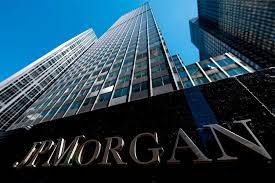JP Morgan analysts, led by Nikolaos Panigirtzoglou, have made a prediction that the U.S. Securities and Exchange Commission (SEC) could be compelled to approve several spot Bitcoin Exchange-Traded Funds (ETFs).
This forecast follows Grayscale’s recent legal victory against the SEC.
Last week, a federal court mandated the SEC to reevaluate its prior rejection of Grayscale’s request to convert its BTC Trust (GBTC) into a spot ETF.
The court’s decision was based on the SEC’s “arbitrary and capricious” approach, where it failed to clarify its differing treatment of futures-based ETFs and spot-based Bitcoin ETFs.
The court emphasized that the SEC’s rejection lacked a solid foundation, particularly given the strong correlation between the spot market and the CME futures market.
Nikolaos Panigirtzoglou commented in a note, “The SEC would need to retroactively withdraw its previous approval of futures-based Bitcoin ETFs to justify denying Grayscale’s proposal.
Such a move would be highly disruptive and embarrassing for the SEC.” He added, “Considering the circumstances, it seems more likely that the SEC will approve pending spot Bitcoin ETF applications from various asset managers, including Grayscale.”
The SEC’s recent decision to postpone decisions on spot ETFs from financial giants like BlackRock, Fidelity, and Invesco until mid-October has fueled speculation.
JP Morgan analysts interpret this delay as a strategic maneuver by the SEC, possibly aimed at approving multiple spot Bitcoin ETF applications simultaneously.
This approach could not only eliminate any first-mover advantage but also encourage competition, potentially leading to lower ETF fees.
Panigirtzoglou stated, “It appears more likely that the SEC would be forced to approve pending spot Bitcoin ETF applications from several asset managers, including Grayscale.”
While the potential approval of spot ETFs in the U.S. marks a significant milestone, JP Morgan analysts have raised a note of caution.
They pointed out that spot BTC ETFs have been operating in regions like Canada and Europe for some time but haven’t attracted substantial investor interest.
The analysts also noted, “The outflows from gold ETFs over the past year haven’t significantly benefited Bitcoin funds, including futures ETFs.”



